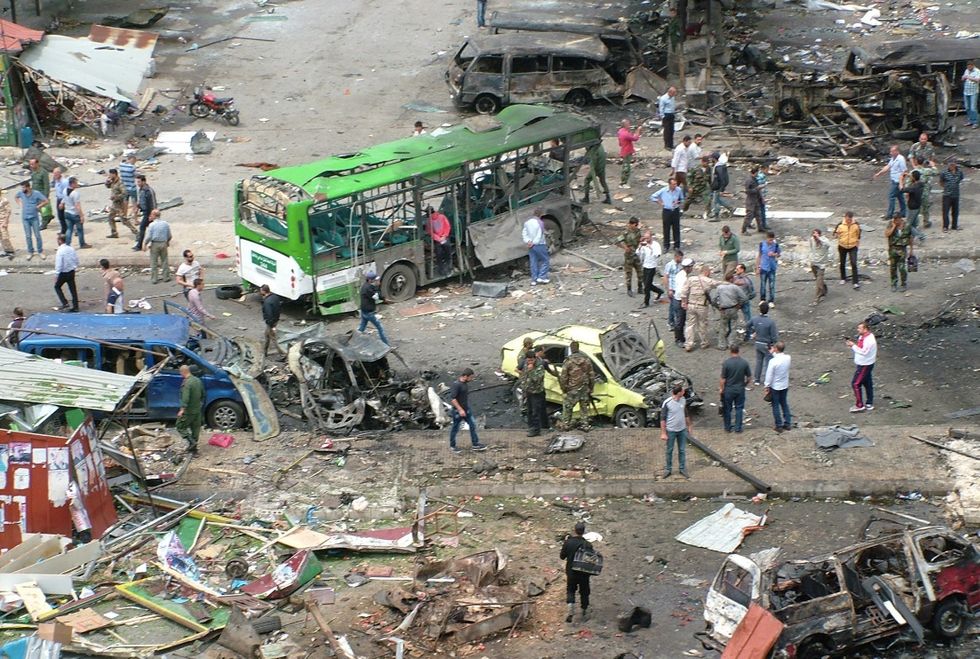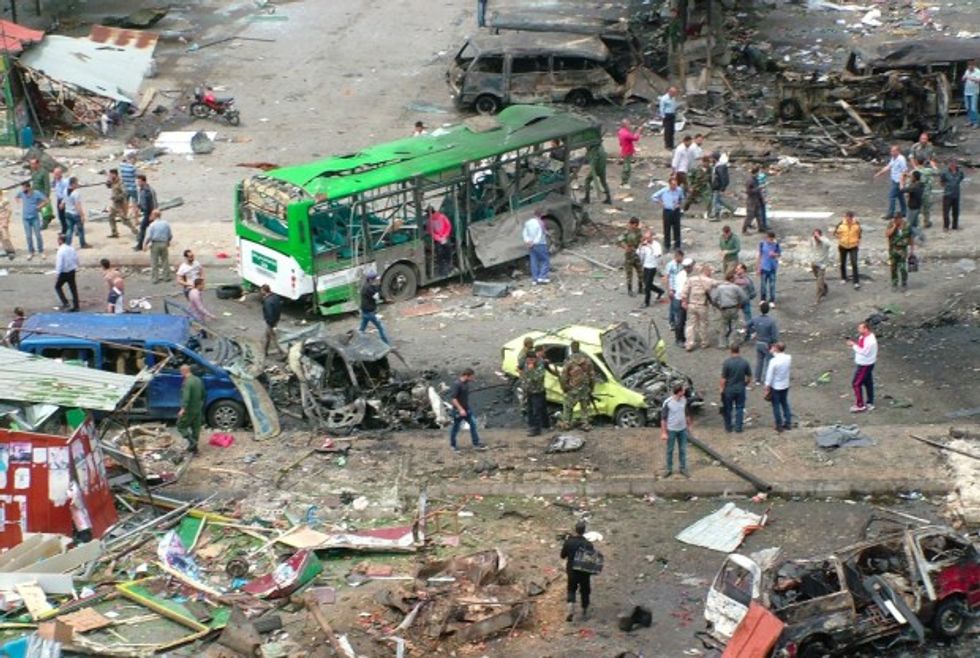
In this photo released by the Syrian official news agency SANA, Syrians inspect damages after a bombing attack at a bus station, in the coastal town of Tartus, Syria, Monday, May 23, 2016. (SANA via AP)

By Bonnie Kristian
The “first key task” of a Hillary Clinton presidency, her campaign said at the end of July, would be a “full review” and “reset” of U.S. intervention in Syria’s dual conflicts of civil war and Islamic State invasion.
But regardless of whether Clinton wins, the Washington establishment is pushing for just such an escalation, featuring reckless ground war, massive expense, and untold casualties.
This approach to Syria is typical, irresponsible, and doomed to expand the chaos it falsely promises to fix. Such a status quo policy remains miraculously impervious to the lessons of recently failed interventions, planning to replay all the greatest hits—or rather, misses—of the Libya jaunt: a no-fly zone, boots (but not, ya know, boots) on the ground, ousting an autocratic ruler, supporting sketchy local allies, and perhaps even increasing the devastating humanitarian toll in the name of lowering it.

DC elites have long laid the groundwork for just such an ill-advised escalation, regardless of who becomes commander-in-chief. The State Department dissent cable from June, which urged expanded American military involvement in Syria, argued that airstrikes against the Bashar al-Assad regime would help defeat Islamic State, failing to countenance the very real possibility—as similar U.S.-orchestrated attacks in Iraq and Libya have demonstrated—that this would only add to the chaos.
As far back as 2013, former President Bill Clinton sounded a similar note in his criticism of President Obama for “over-learn[ing]” the lessons of Iraq in Syria. But we would be wrong to dismiss those lessons of recent interventionist failures so easily. Indeed, it is only by committing those lessons to memory that we may avoid the grim choice between endless nation-building or a power vacuum for which U.S. policy fumbles are more directly responsible than the chaos of Syria today.
Unfortunately, the former president is joined by a who’s who of the natsec establishment in advocating a more bellicose Syria policy. The United States should increase its ground presence and launch “an expanded campaign of intelligence collection, airstrikes, and direct-action raids,” said a report from a team by Michele Flournoy, who is rumored to be Hillary Clinton’s likely defense secretary pick. Though Flournoy quibbles over whether such language really means “boots on the ground,” her objections ring hollow in a conflict where a no-fly zone isn’t a no-fly zone and combat isn’t combat. In 2016, reckless escalation doesn’t necessarily look like a reenactment of Normandy.
Ultimately, Fluornoy and those who share her approach seek to thread an impossible needle of defeating Islamic State (with ever-elusive “moderate” rebels), deposing yet another evil dictator in Assad, stabilizing Syria and the broader region, and avoiding war with Assad’s powerful supporters, Russia and Iran.
This foreign policy establishment will pressure the incoming administration to pursue this unrealistic goal. If they succeed, it will mean not only escalation but mission creep, including yet another long-term nation-building project for which Americans will pay dearly in blood and treasure. We’ll risk hot war with Russia and Iran while making no clear gains for our own national interest.
That’s an embarrassingly shortsighted proposal from a supposed cadre of experts. More important, it’s a dangerous approach to American security, a plan to plunge us into yet another unnecessary war of choice with no clear objective in sight.
Bonnie Kristian is a fellow at Defense Priorities, contributing writer at The Week, and a columnist at Rare.
–
TheBlaze contributor channel supports an open discourse on a range of views. The opinions expressed in this channel are solely those of each individual author.